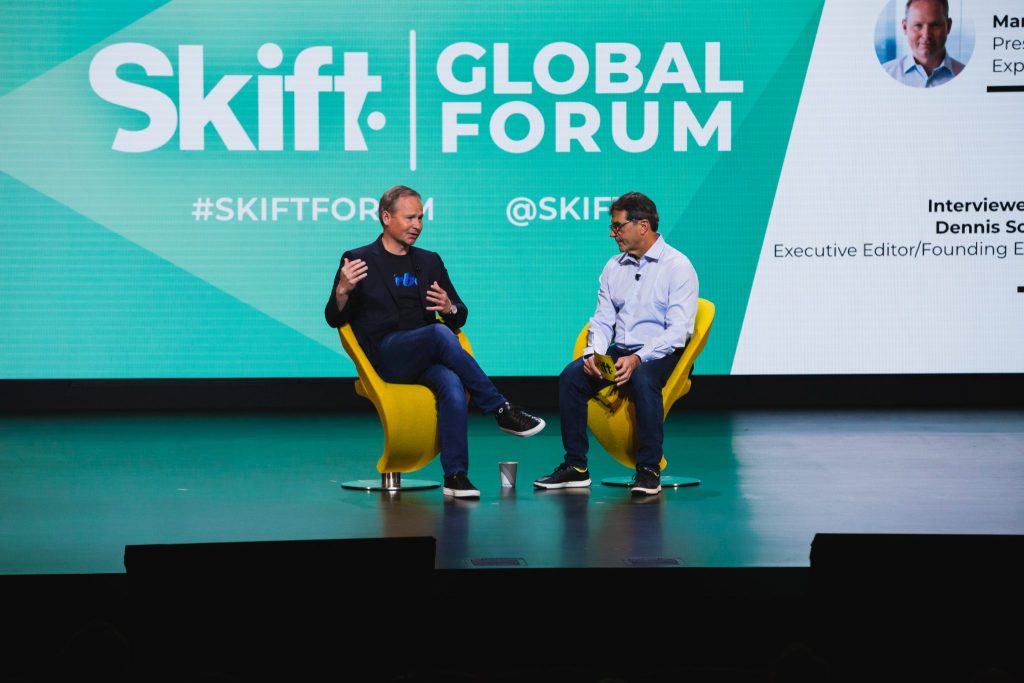Expedia CEO Is Unfazed by Airbnb's Growing Vacation Rental Lead

Skift Take
Mark Okerstrom, the chief of Expedia Group, has high hopes for his recently rebranded homesharing unit Vrbo. But as competition intensifies in the segment, we're wondering if we'll be describing Vrbo (pronounced "VER-boh") using active verbs or passive ones.
Expedia Group is hoping that this year's rebranding of its home rental business Vrbo will accelerate the unit's growth. The marketing push is coming as the rivalry heats up among it and other booking services for apartments, homes, and hotel rooms.
Mark Okerstrom, president and CEO of Expedia Group, wore a t-shirt branded Vrbo on stage Thursday at Skift Global Forum. Okerstrom said the rental segment isn't a winner-take-all market, and that Vrbo can retain its position as one of the long-term leaders by spending more on marketing.
Sources who have looked at privately held company's first-quarter financial results last month showed that Airbnb had racked up more booked room nights than Expedia Group did

